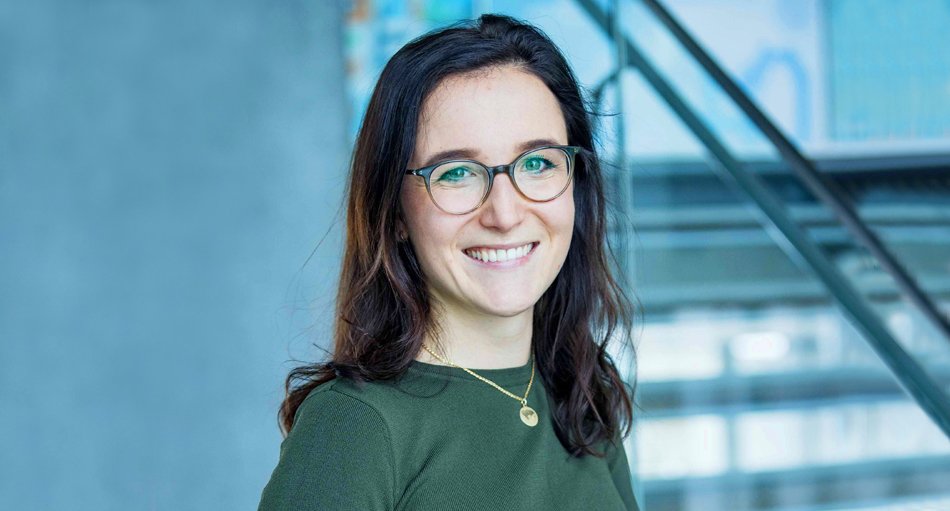AUSTRIAN CONVENTION BUSINESS MAGAZIN (PRINT 2023/04)

Die wissenschaftliche Arbeit von Nieke Dieteren, die das transformative Event Design und dessen Rolle in der Veranstaltungsbranche untersucht, wurde mit dem Best Meeting Thesis Austria Award 2023 in der Kategorie Masterarbeit ausgezeichnet
The experience economy – coined by Joe Pine and Jim Gilmore in the 90s – explains the progression of economic value in five waves; from commodities to goods, services, experiences and finally, to transformations. It underlines how customisation of economic offerings is becoming ever more so to stand out from the competition, which has likewise become apparent across various industries such as hospitality, tourism, education and the MICE industry.
Given the rapid recovery of the meetings industry post Covid-19, with a global market value increasing from US$ 1.27 billion in 2023 to an estimated US$ 1.78 trillion in 2030 (Global MICE Industry Size 2030, 2023) and striving to connect professionals in an enhanced face-to-face environment (MICE Market Size, Share & Growth Analysis Report, 2030, n.d.), the MICE industry is becoming an increasingly popular tool for orchestrating memorable and transformative experiences (TEs). Yet the current literature on experience design mainly focuses on the tourism and hospitality sector and in addition on defining TEs and their impact on consumers, excluding other key stakeholders such as experience facilitators. As a result, the following research questions guided the master thesis’ research:
A total of 31 in-depth interviews were conducted with experience facilitators from a range of transformative events, including experience and event designers, educators, professors and life coaches. Interviewees were selected based on two criteria:
a) interviewees ought to have experience in facilitating participants at a transformative event or workshop
b) interviewees required a general understanding of ‘experience design’ and ‘human transformation’.
All interviews were recorded and conducted through the online platform Zoom. After collecting the data, the interviews were transcribed and uploaded to the data analysis programme MAXQDA. For the analysis of the data, a thematic template analysis was chosen based on the extended Experience Broker’s (EB) framework (Weiler & Black, 2015; Parsons et al., 2019) and Tung & Ritchie’s (2011) phases of a memorable tourist experience. This resulted in the ‚Framework of Transformative Experience Facilitators‘ (see Figure 1).
The framework consists of two main parts: the seven roles and the eight competency categories TEFs require while guiding the participant at a transformative event. First, the TEF steps in the role of facilitating the participants with physical, interactional, intellectual, emotional and self-developing access from the original EB framework and two newly appeared accesses: challenging and securing access.
The physical and emotional access mainly take place during the event. Respectively, they focus on communication and framing of information related to activities and the event’s time and place and facilitating empathy and mutual understanding for feelings and emotions. Interactional access refers to the mediating role the TEF takes on in facilitating interaction between participants, within groups and between participants and the facilitator, before and during the event.
Next, the intellectual access is linked to the creation of understanding among participants related to the purpose of the planned activities and triggering them to challenge their ideas and open their mind to new insights which flows through all event phases. The self-developing access is also represented in all phases and refers to the TEF being a “lighthouse“ for consumers throughout to ensure that participants always have a reference point to consult while going through the event and TEs.
Moreover, the securing access relates to creating a sense of safety before and during the event to allow people to open up to new ideas, insights and potential transformations. This, for instance, may involve a prior screening of participants, clear communication, and establishing “containers“ of safety where free expression of opinions is appreciated.
Lastly, and seemingly opposing the previous access, the challenging access underlines the importance of pushing participants outside their comfort zone, while staying inside a container of safety and challenging their beliefs and attitudes to trigger a transformation.
Second, the TEF’s role could be enriched and individualised with a variety of complementary competencies, which are sorted into eight labels: “knower“, “thinker“, “collaborator“, “empowerer“, “organiser“, “storyteller“, “self-caretaker“ and “others-caretaker“, within each a wide spectrum of sub-dimensions that describe the TEF‘s competencies of which a few are summarised in Figure 1.
The creation of the TEF Framework provides a practical reference for practitioners such as facilitators, transformative workshop designers, event designers, transformation coaches, experience design lecturers and others. For instance, TEFs could reflect on their current role and competencies and try out new styles; event designers could use the framework as quality insurance when staging TEs and hiring experience providing personal; and teachers may use the framework to educate students and event designers of the future on how to stand out from the mass and facilitate life-changing events.
In conclusion, creating transformative experiences involves various aspects. Given the sensitive nature of transformation, providing the right guidance to participants is crucial for navigating human transcendence. To illustrate this role, this thesis finishes with the analogy of a rose: similar to how a rose grows by its own will and capacity, a guiding balustrade may assist the flower in finding new directions and reaching a beautiful spot to ultimately bloom.
Figure 1: Transformative Experience Facilitator Framework - including seven accesses and eight competence labels – author’s own
Nieke Dieteren, ursprünglich aus den Niederlanden, absolvierte ihren Bachelor in European Studies in Maastricht und hat Oktober 2023 ihren Master of Arts an der FH Salzburg in Innovation und Management im Tourismus erworben, wo sie sich als Studentin und wissenschaftliche Mitarbeiterin auf Erlebnis- und Eventdesign spezialisiert hat. Ab November wird Nieke ihr erworbenes Fachwissen in ihrer neuen Funktion als Projektleiterin für innovative Event- und Plattform-Konzepte bei der Österreich Werbung in Wien einsetzen.
Erstellt am: 19. März 2024
Bitte die Netiquette einhalten. * Pflichtfelder